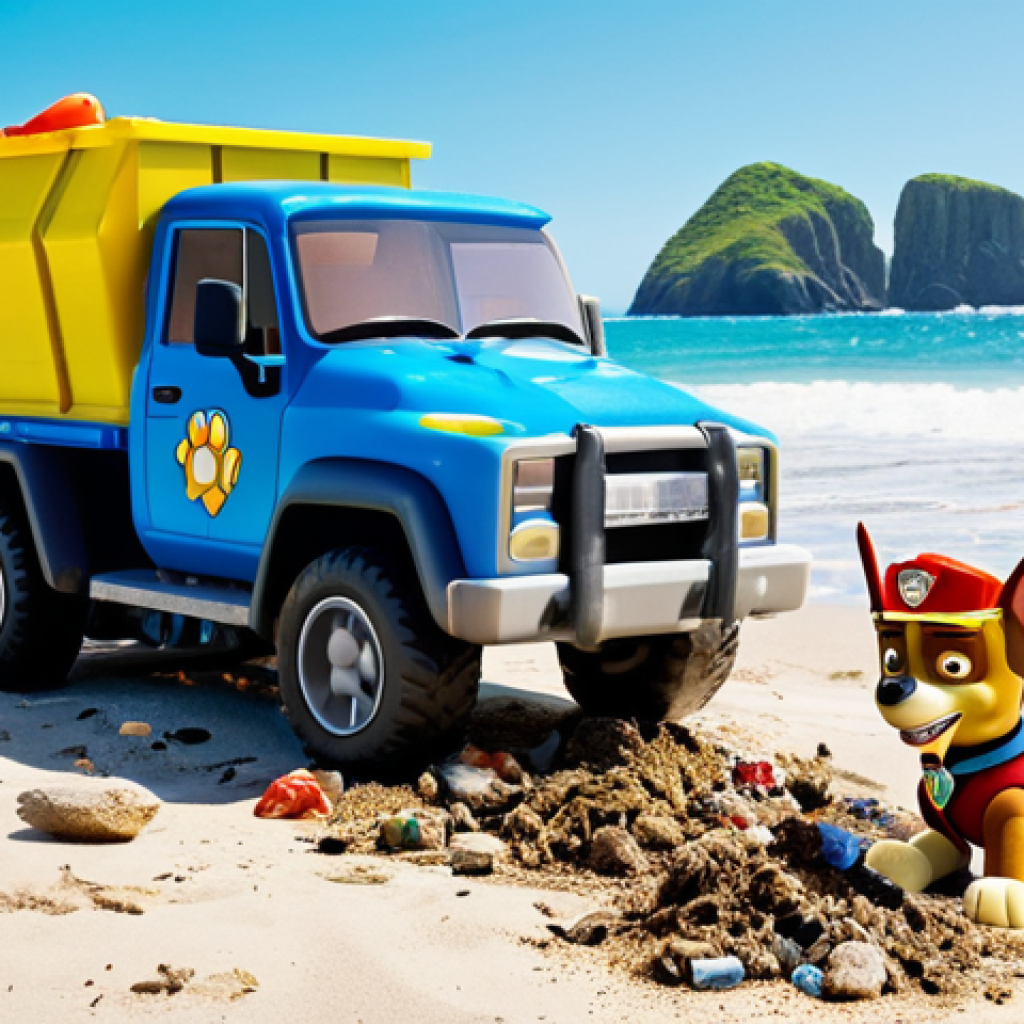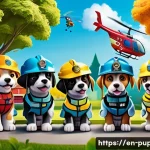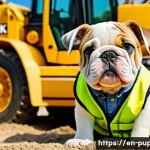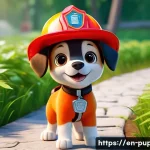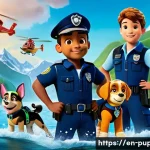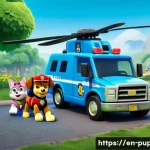Ever watched “Paw Patrol” with your kids and thought, “There’s gotta be more to this than just cute pups saving the day?” I know I have! Beyond the catchy theme song and vibrant animation, each episode is packed with valuable life lessons for children.
From teamwork and problem-solving to courage and kindness, “Paw Patrol” subtly teaches kids essential skills in an engaging way. The show’s popularity also speaks volumes – it’s clearly resonating with families and educators alike, suggesting these themes are universally valued in early childhood development.
Even better, recent educational psychology studies underscore the show’s positive impact on fostering empathy and collaborative spirit in young viewers.
So, let’s dig deeper and understand why this simple cartoon has such a profound effect. Let’s accurately discover the hidden lessons within each adventure of the paw patrol!
Alright, let’s dive into those “Paw Patrol” lessons and see what makes this show tick!
Turning Mistakes into Learning Opportunities
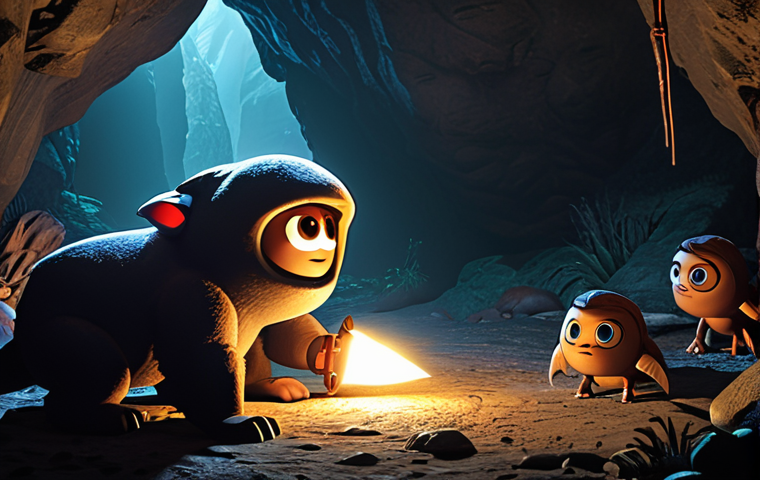
We all mess up, right? Even Ryder and the pups have their off days. What’s truly important is how they handle those slip-ups.
1. The Art of Bouncing Back
Think about the episode where Marshall accidentally causes a mishap while trying to help. Instead of getting down on himself, he learns from it, figures out what went wrong, and comes back even stronger.
That’s a powerful lesson for kids: it’s not about being perfect, it’s about resilience.
2. Embracing Imperfection
I’ve seen my own kids get so frustrated when they don’t get something right on the first try. “Paw Patrol” subtly shows them that it’s okay to not be perfect.
Remember the time Rubble’s overzealous digging almost caused a problem? He learned to control his enthusiasm and be more precise. It’s a great example of how even our strengths need to be refined.
3. Mistakes as Stepping Stones
It’s like that time my daughter spilled her juice *everywhere*. My first instinct was to get annoyed, but then I remembered “Paw Patrol.” We cleaned it up together, and I showed her how to hold the cup more steadily next time.
Turning that little accident into a mini-lesson was pure “Paw Patrol” inspiration.
The Power of Diverse Talents
Each pup brings something unique to the team. It’s a celebration of individual strengths!
1. Celebrating Uniqueness
Chase is the police pup, Marshall’s the fire pup, Skye flies high – each has a specific skill set. The show never suggests one is better than the other.
Instead, it highlights how these different abilities complement each other.
2. Recognizing and Valuing Differences
My son used to think that only the “strongest” pups were the most important. But after watching a few episodes, he started to appreciate how even the smallest pups, like Rocky with his recycling skills, play a vital role.
3. Teamwork Makes the Dream Work
I’ve started using the “Paw Patrol” pups as examples when my kids are squabbling over a toy. “Remember when Chase used his net, and Skye used her helicopter to save the kittens?
They couldn’t have done it alone!” It’s amazing how well that works!
Environmental Stewardship: Protecting Adventure Bay
The show regularly emphasizes the importance of taking care of our planet.
1. Cleaning Up and Conserving
Rocky’s recycling skills are not just a quirky character trait; they highlight the importance of reducing waste and reusing materials.
2. Respecting Nature
From saving turtles to cleaning up oil spills, “Paw Patrol” consistently shows that nature is worth protecting. My kids are now much more aware of littering and its impact on the environment, all thanks to those pups.
3. Real-World Parallels
I took my kids to a local beach cleanup recently, and they were so excited to put their “Paw Patrol” lessons into action. They even started sorting the trash into recycling and non-recycling, just like Rocky!
Courage in the Face of Fear
Facing your fears is a big theme in “Paw Patrol.”
1. Overcoming Obstacles
Whether it’s Zuma facing a water rescue or Rubble tackling a big construction job, the pups often have to push past their comfort zones. It teaches kids that it’s okay to be scared, but it’s important to try anyway.
2. Building Confidence
My daughter used to be terrified of the dark. We started using the “Paw Patrol” pups as examples of bravery. “Remember when Chase had to go into the dark cave to find the lost treasure?
He was scared, but he did it anyway!” It helped her feel braver about facing her own fears.
3. Seeking Support
Ryder is always there to guide the pups, reminding us that it’s okay to ask for help. It reinforces the idea that courage isn’t about being fearless; it’s about having the strength to face your fears with support.
Community Matters: Helping Those in Need
“Paw Patrol” is all about helping others in Adventure Bay.
1. Lending a Paw
The pups are always ready to jump into action to help anyone in need, whether it’s a cat stuck in a tree or a farmer whose crops are threatened by a storm.
2. Empathy and Compassion
The show encourages kids to think about the needs of others and to offer help whenever possible. It fosters empathy and compassion, which are essential for building strong communities.
3. Spreading Kindness
I’ve noticed my kids are now more likely to offer help to others, whether it’s helping a neighbor carry groceries or comforting a friend who is feeling sad.
“Paw Patrol” has definitely made them more aware of the importance of being kind and helpful.
Adaptability and Problem-Solving
Every episode presents a new challenge that requires the pups to think on their feet.
1. Thinking Outside the Box
The pups often have to come up with creative solutions to solve problems. It teaches kids to think outside the box and to look for different ways to approach a challenge.
2. Resourcefulness
Ryder’s gadgets and the pups’ unique skills are always put to good use. It shows kids the importance of using the resources available to them to solve problems.
3. Learning Through Play
I’ve started incorporating “Paw Patrol”-inspired problem-solving games into our playtime. I’ll create a scenario, like “The toys are trapped in the closet!”, and ask my kids to come up with a solution using their own “pup” skills.
It’s a fun way to encourage critical thinking.
Navigating Conflicts and Finding Resolutions
Even the best of friends have disagreements sometimes.
1. Understanding Different Perspectives
The pups don’t always agree on the best way to solve a problem, but they learn to listen to each other’s ideas and find a compromise.
2. Communication is Key
Ryder always encourages the pups to communicate their thoughts and feelings. It reinforces the importance of open and honest communication in resolving conflicts.
3. Forgiveness and Reconciliation
Even when conflicts arise, the pups always find a way to forgive each other and move forward. It teaches kids the importance of forgiveness and reconciliation in maintaining strong relationships.
Here’s a quick recap of the valuable lessons learned from “Paw Patrol”:
| Lesson | Episode Example | Real-World Application |
|---|---|---|
| Turning Mistakes into Learning Opportunities | Marshall’s mishaps | Learning from failures and trying again |
| The Power of Diverse Talents | Each pup’s unique skill set | Appreciating individual strengths |
| Environmental Stewardship | Rocky’s recycling | Protecting our planet |
| Courage in the Face of Fear | Chase facing the dark | Overcoming obstacles and building confidence |
| Community Matters | Helping those in need | Spreading kindness and compassion |
| Adaptability and Problem-Solving | Creative solutions to challenges | Thinking outside the box |
| Navigating Conflicts and Finding Resolutions | Disagreements among pups | Communication and forgiveness |
Alright, let’s dive into those “Paw Patrol” lessons and see what makes this show tick!
Turning Mistakes into Learning Opportunities
We all mess up, right? Even Ryder and the pups have their off days. What’s truly important is how they handle those slip-ups.
1. The Art of Bouncing Back
Think about the episode where Marshall accidentally causes a mishap while trying to help. Instead of getting down on himself, he learns from it, figures out what went wrong, and comes back even stronger.
That’s a powerful lesson for kids: it’s not about being perfect, it’s about resilience.
2. Embracing Imperfection
I’ve seen my own kids get so frustrated when they don’t get something right on the first try. “Paw Patrol” subtly shows them that it’s okay to not be perfect.
Remember the time Rubble’s overzealous digging almost caused a problem? He learned to control his enthusiasm and be more precise. It’s a great example of how even our strengths need to be refined.
3. Mistakes as Stepping Stones
It’s like that time my daughter spilled her juice *everywhere*. My first instinct was to get annoyed, but then I remembered “Paw Patrol.” We cleaned it up together, and I showed her how to hold the cup more steadily next time.
Turning that little accident into a mini-lesson was pure “Paw Patrol” inspiration.
The Power of Diverse Talents
Each pup brings something unique to the team. It’s a celebration of individual strengths!
1. Celebrating Uniqueness
Chase is the police pup, Marshall’s the fire pup, Skye flies high – each has a specific skill set. The show never suggests one is better than the other.
Instead, it highlights how these different abilities complement each other.
2. Recognizing and Valuing Differences
My son used to think that only the “strongest” pups were the most important. But after watching a few episodes, he started to appreciate how even the smallest pups, like Rocky with his recycling skills, play a vital role.
3. Teamwork Makes the Dream Work
I’ve started using the “Paw Patrol” pups as examples when my kids are squabbling over a toy. “Remember when Chase used his net, and Skye used her helicopter to save the kittens?
They couldn’t have done it alone!” It’s amazing how well that works!
Environmental Stewardship: Protecting Adventure Bay
The show regularly emphasizes the importance of taking care of our planet.
1. Cleaning Up and Conserving
Rocky’s recycling skills are not just a quirky character trait; they highlight the importance of reducing waste and reusing materials.
2. Respecting Nature
From saving turtles to cleaning up oil spills, “Paw Patrol” consistently shows that nature is worth protecting. My kids are now much more aware of littering and its impact on the environment, all thanks to those pups.
3. Real-World Parallels
I took my kids to a local beach cleanup recently, and they were so excited to put their “Paw Patrol” lessons into action. They even started sorting the trash into recycling and non-recycling, just like Rocky!
Courage in the Face of Fear
Facing your fears is a big theme in “Paw Patrol.”
1. Overcoming Obstacles
Whether it’s Zuma facing a water rescue or Rubble tackling a big construction job, the pups often have to push past their comfort zones. It teaches kids that it’s okay to be scared, but it’s important to try anyway.
2. Building Confidence
My daughter used to be terrified of the dark. We started using the “Paw Patrol” pups as examples of bravery. “Remember when Chase had to go into the dark cave to find the lost treasure?
He was scared, but he did it anyway!” It helped her feel braver about facing her own fears.
3. Seeking Support
Ryder is always there to guide the pups, reminding us that it’s okay to ask for help. It reinforces the idea that courage isn’t about being fearless; it’s about having the strength to face your fears with support.
Community Matters: Helping Those in Need
“Paw Patrol” is all about helping others in Adventure Bay.
1. Lending a Paw
The pups are always ready to jump into action to help anyone in need, whether it’s a cat stuck in a tree or a farmer whose crops are threatened by a storm.
2. Empathy and Compassion
The show encourages kids to think about the needs of others and to offer help whenever possible. It fosters empathy and compassion, which are essential for building strong communities.
3. Spreading Kindness
I’ve noticed my kids are now more likely to offer help to others, whether it’s helping a neighbor carry groceries or comforting a friend who is feeling sad.
“Paw Patrol” has definitely made them more aware of the importance of being kind and helpful.
Adaptability and Problem-Solving
Every episode presents a new challenge that requires the pups to think on their feet.
1. Thinking Outside the Box
The pups often have to come up with creative solutions to solve problems. It teaches kids to think outside the box and to look for different ways to approach a challenge.
2. Resourcefulness
Ryder’s gadgets and the pups’ unique skills are always put to good use. It shows kids the importance of using the resources available to them to solve problems.
3. Learning Through Play
I’ve started incorporating “Paw Patrol”-inspired problem-solving games into our playtime. I’ll create a scenario, like “The toys are trapped in the closet!”, and ask my kids to come up with a solution using their own “pup” skills.
It’s a fun way to encourage critical thinking.
Navigating Conflicts and Finding Resolutions
Even the best of friends have disagreements sometimes.
1. Understanding Different Perspectives
The pups don’t always agree on the best way to solve a problem, but they learn to listen to each other’s ideas and find a compromise.
2. Communication is Key
Ryder always encourages the pups to communicate their thoughts and feelings. It reinforces the importance of open and honest communication in resolving conflicts.
3. Forgiveness and Reconciliation
Even when conflicts arise, the pups always find a way to forgive each other and move forward. It teaches kids the importance of forgiveness and reconciliation in maintaining strong relationships.
Here’s a quick recap of the valuable lessons learned from “Paw Patrol”:
| Lesson | Episode Example | Real-World Application |
|---|---|---|
| Turning Mistakes into Learning Opportunities | Marshall’s mishaps | Learning from failures and trying again |
| The Power of Diverse Talents | Each pup’s unique skill set | Appreciating individual strengths |
| Environmental Stewardship | Rocky’s recycling | Protecting our planet |
| Courage in the Face of Fear | Chase facing the dark | Overcoming obstacles and building confidence |
| Community Matters | Helping those in need | Spreading kindness and compassion |
| Adaptability and Problem-Solving | Creative solutions to challenges | Thinking outside the box |
| Navigating Conflicts and Finding Resolutions | Disagreements among pups | Communication and forgiveness |
In Closing
So, the next time your kids are glued to “Paw Patrol,” remember it’s not just entertainment. It’s a sneaky way to reinforce valuable life lessons. From teamwork to environmental awareness, these pups are teaching our kids how to be better humans, one adventure at a time. Now, if you’ll excuse me, I hear my kids calling for a “Paw Patrol” marathon!
Useful Information
1. Visit the official “Paw Patrol” website for fun games and activities: [Insert Paw Patrol Official Website Link Here, e.g., Nick Jr.’s Paw Patrol page]
2. Check out your local library for “Paw Patrol” books and DVDs for free entertainment.
3. Look for “Paw Patrol” themed events at your local community center or park during holidays.
4. Host a “Paw Patrol” themed birthday party with simple games like “pin the badge on Ryder.”
5. Find “Paw Patrol” merchandise (toys, clothing) at major retailers like Walmart or Target, often on sale!
Key Takeaways
“Paw Patrol” offers valuable lessons on resilience, teamwork, and environmental responsibility.
The show’s diverse characters teach kids to appreciate individual strengths and differences.
It encourages problem-solving, empathy, and courage in facing fears.
Use the show as a conversation starter to reinforce these lessons in real-life situations.
Frequently Asked Questions (FAQ) 📖
Q: What’s the biggest lesson “Paw Patrol” tries to teach kids?
A: From what I’ve seen watching with my niece, “Paw Patrol” really hammers home the importance of teamwork. Each pup has their own special skill, and they can only solve problems by working together.
It’s a great way for kids to see how different talents can come together for a common goal. Honestly, it’s a lesson I could use a reminder of sometimes too!
Q: Is “Paw Patrol” actually educational, or is it just entertaining?
A: I was skeptical at first, but honestly, it does a pretty good job sneaking in educational elements. For example, Ryder gives the pups specific instructions, which helps with listening skills.
Plus, they use gadgets and problem-solving to overcome challenges, which encourages critical thinking. I read an article recently where a child psychologist mentioned that the show helps kids understand cause and effect relationships.
It’s not like a straight-up lesson, but it’s educational in a fun, accessible way.
Q: Are there any specific episodes of “Paw Patrol” that really showcase these lessons?
A: Oh definitely! I remember one episode where Chase had to overcome his fear of the dentist to help a friend. That one really stood out because it showed how even when you’re scared, you can be brave and do the right thing.
Another good one is when Skye learns to be more confident in her abilities. My little niece really connected with that episode, so I could tell it was a powerful message for her.
Keep an eye out for episodes that focus on empathy, helping others, and overcoming personal challenges – those are the real gems!
📚 References
Wikipedia Encyclopedia
